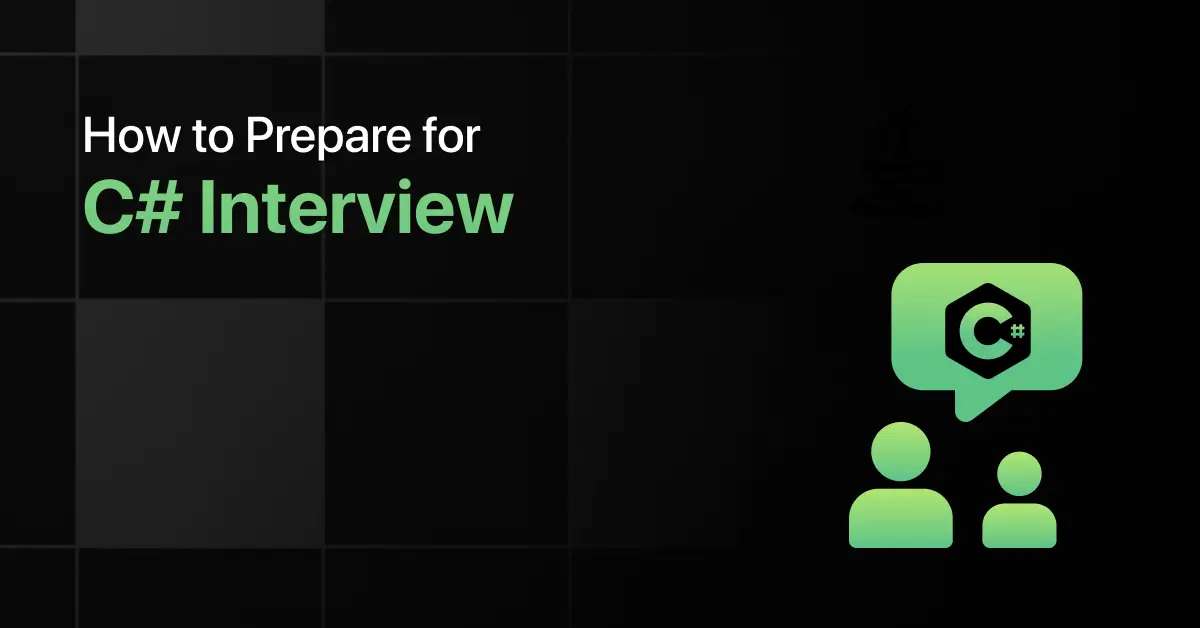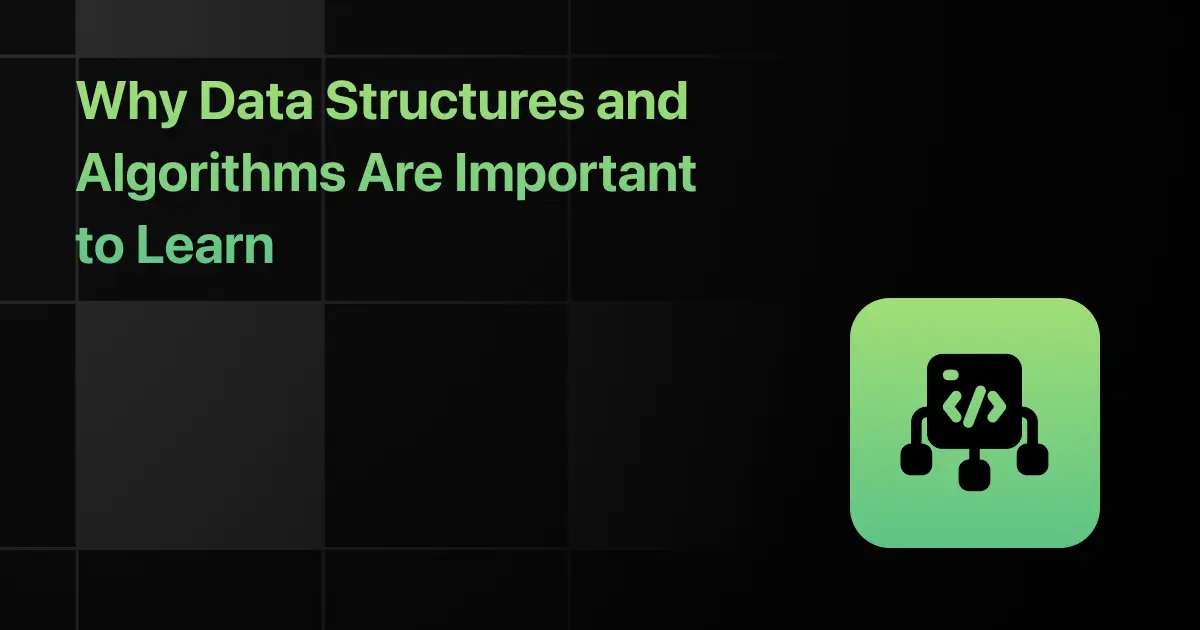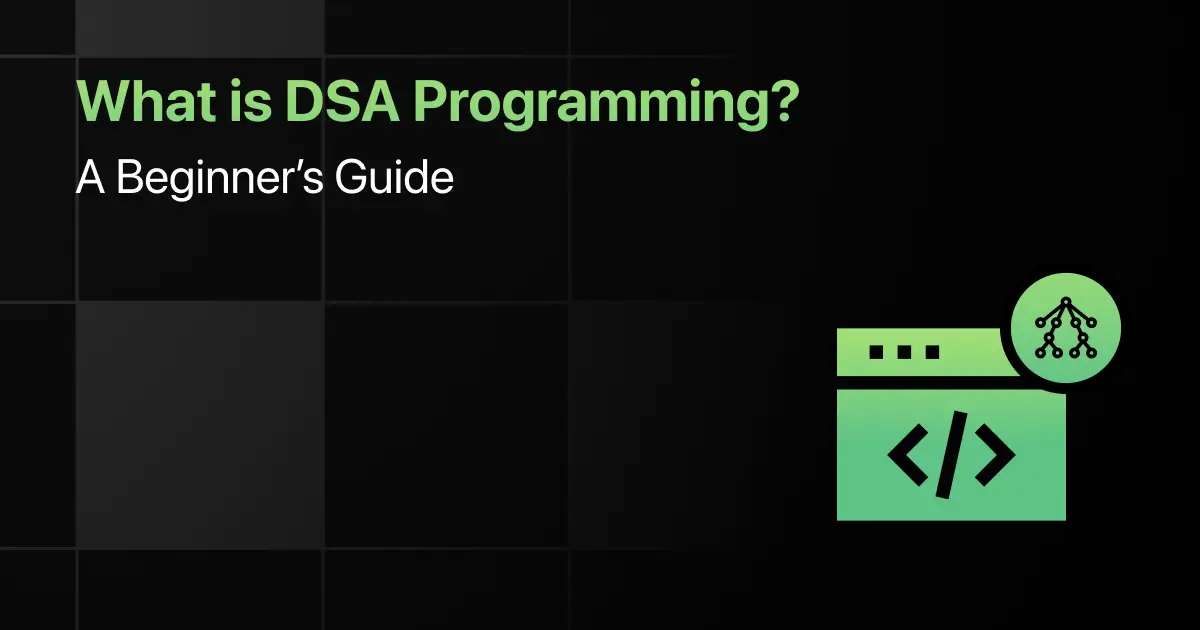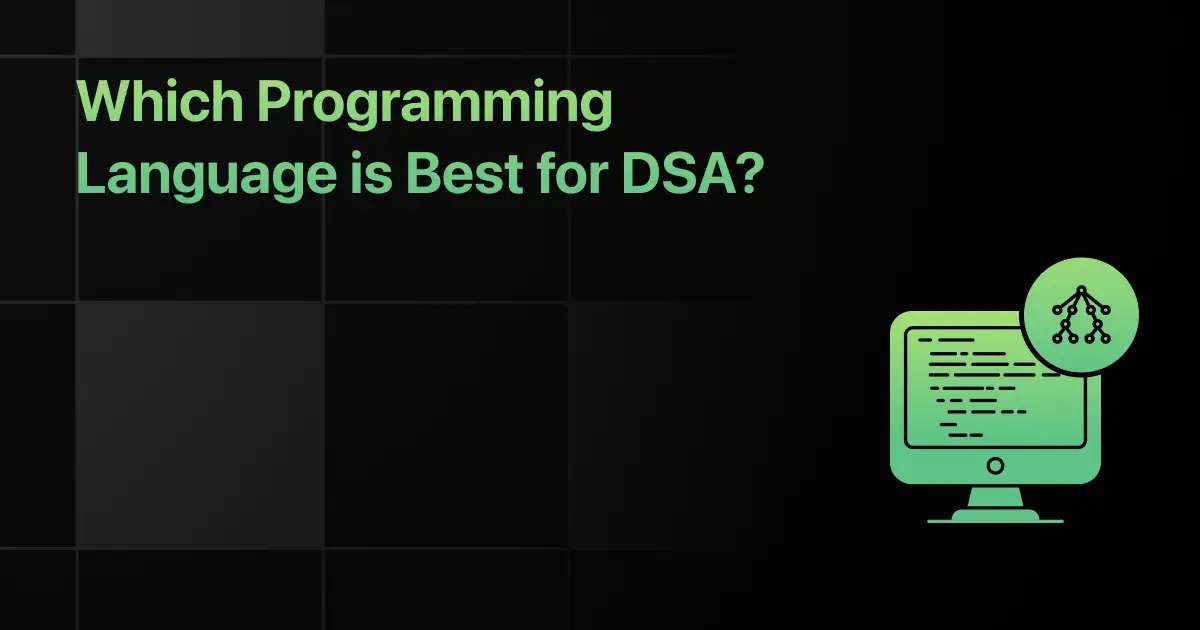How to Prepare for C# Interview

Are you preparing for a C# interview but not sure how to structure your study plan?
Many candidates struggle to balance learning C# fundamentals, practicing coding problems, and reviewing commonly asked interview questions.
This blog will guide you with a structured approach to C# interview preparation, covering key concepts, coding practice, and practical tips to help you perform with confidence.
C# Interview Preparation Guide
Preparing for a C# interview requires a solid grasp of the language basics such as data types, classes, inheritance, and exception handling, along with advanced features like LINQ, generics, and asynchronous programming.
Interviewers often test both your coding ability and your understanding of how C# is applied in real-world projects.
To make preparation effective, it helps to combine theory with hands-on practice and also review real interview experiences, which highlight the types of C# questions frequently asked by companies.
1. Master the Core Fundamentals
A strong foundation in C# fundamentals is essential for interview success. Interviewers usually begin with questions on core language concepts before testing advanced features. Key areas to revise include:
- C# syntax, data types, and operators
- Control structures (if-else, switch, loops)
- Methods and parameter passing
- Object-Oriented Programming – classes, objects, inheritance, polymorphism, abstraction, encapsulation
- Properties, indexers, and access modifiers
- Interfaces and abstract classes
- Exception handling
- Collections and Generics
- Delegates, events, and lambda expressions
- LINQ basics
- Asynchronous programming (async/await, tasks)
- Being thorough in these topics ensures you are ready for both conceptual and coding-based questions.
2. Practice Coding Problems Consistently
C# interviews often include hands-on coding tasks, so consistent practice is critical. Focus on solving problems involving arrays, strings, recursion, linked lists, and basic algorithms using C#. Practice using collections and LINQ queries to solve data manipulation tasks quickly.
Debugging and optimizing code are also important, as interviewers may test how efficiently you solve real-world problems. Regular practice with C# Exercises will help you improve speed, accuracy, and confidence during interview rounds.
3. Prepare for Commonly Asked Interview Questions
In addition to coding, interviewers frequently ask conceptual and scenario-based questions to test your knowledge of C#. Reviewing common questions will give you a clear idea of what to expect. Some examples include:
- What are the main features of C#?
- Explain the difference between value types and reference types.
- What is the difference between an abstract class and an interface?
- What are access modifiers in C# and how are they used?
- Explain method overloading and method overriding.
- What are properties in C# and how do they differ from fields?
- How is exception handling implemented in C#?
- What are delegates and events, and how are they used?
- What is the difference between IEnumerable, ICollection, and IList?
- How does garbage collection work in C#?
- What are generics in C# and why are they important?
- What is the difference between synchronous and asynchronous programming in C#?
- How does the async/await keyword work?
- What is the difference between LINQ to Objects, LINQ to SQL, and LINQ to XML?
- How does C# achieve encapsulation and data hiding?
Preparing answers to these questions will help you tackle both technical and HR rounds confidently.
4. Preparation Tips
- Revise Core Topics: Go over important areas like OOP, exception handling, and collections to ensure clarity in fundamentals.
- Practice Coding Daily: Solve problems involving arrays, strings, and LINQ queries to improve coding accuracy and speed.
- Take Mock Interviews: Simulate interview conditions to get used to explaining solutions under time pressure.
- Build Small Projects: Work on C# projects like a console-based inventory system or student record manager to showcase practical skills.
- Review Before the Interview: Spend the final day revising OOP concepts, generics, and async/await instead of learning new topics.
Final Words
Preparing for a C# interview requires a balance of strong conceptual knowledge, hands-on coding practice, and revision of commonly asked questions.
With consistent preparation and a structured approach, you can confidently handle both technical and practical interview rounds.
Explore More Interview Preparation for
- Python
- Software Developer
- C++
- Machine Learning
- Full Stack Developer
- Front End Developer
- .NET
- PHP
- Angular
- Node JS
- C Programming
- JavaScript
- Java
- DBMS
- SQL
- React
FAQs
To prepare for a C# interview as a fresher, focus on language fundamentals, OOP concepts, coding practice, and revising commonly asked questions.
The most important C# topics for interviews include classes, inheritance, interfaces, exception handling, collections, generics, delegates, and async/await.
You should practice C# coding problems daily on arrays, strings, recursion, and LINQ until you can solve them accurately within time limits.
Yes, focusing on DSA in C# for campus placement is important, as most technical rounds emphasize solving algorithmic problems using the language.
The best platforms to practice C# coding questions are PlacementPreparation.io, LeetCode, HackerRank, and GeeksforGeeks.
To revise C# concepts one day before the interview, quickly review OOP principles, collections, generics, and async/await, along with common questions.
PlacementPreparation.io is useful for C# interview preparation because it offers structured exercises, MCQs, and real interview questions tailored for placements.
Related Posts


Importance of Data Structures and Algorithms (DSA)
Why is everyone constantly talking about DSA, and why is it considered so important for programming? Many beginners focus only on …
Warning: Undefined variable $post_id in /var/www/wordpress/wp-content/themes/placementpreparation/template-parts/popup-zenlite.php on line 1050








